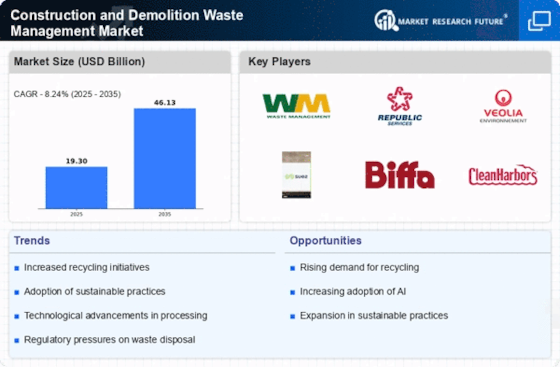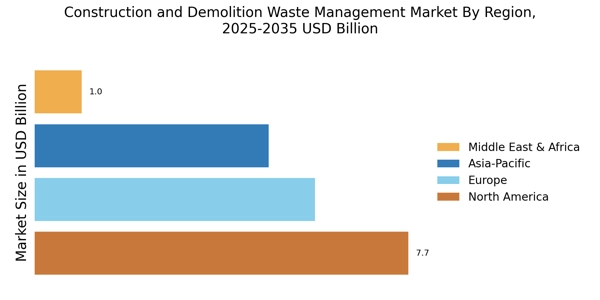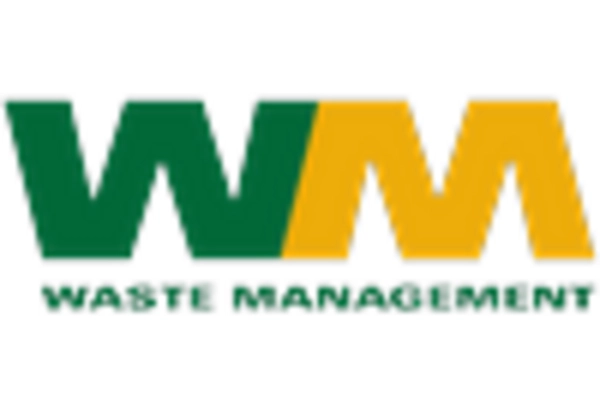Economic Growth and Urbanization
The Construction and Demolition Waste Management Market is significantly impacted by economic growth and urbanization trends. As urban areas expand and infrastructure projects increase, the volume of construction and demolition waste is expected to rise correspondingly. This growth presents both challenges and opportunities for waste management companies. The market is projected to expand as municipalities and private sectors invest in waste management infrastructure to cope with the increasing waste generation. Furthermore, the demand for efficient waste management solutions is likely to escalate, prompting innovation and investment in the sector.
Rising Awareness of Sustainability
The Construction and Demolition Waste Management Market is witnessing a growing awareness of sustainability among stakeholders. As environmental concerns become more pronounced, construction firms are increasingly prioritizing sustainable practices. This shift is reflected in the rising demand for recycled materials and eco-friendly disposal methods. According to recent studies, a significant percentage of construction companies are now incorporating sustainability into their project planning. This trend not only enhances their corporate image but also aligns with consumer preferences for environmentally responsible practices. As a result, the industry is likely to see a robust increase in the adoption of sustainable waste management solutions.
Increasing Environmental Regulations
The Construction and Demolition Waste Management Market is heavily influenced by the tightening of environmental regulations. Governments are implementing stricter guidelines to manage waste disposal and promote recycling. For example, regulations mandating the recycling of a certain percentage of construction waste are becoming commonplace. This regulatory pressure compels construction companies to adopt more sustainable waste management practices. The market is projected to reach a valuation of several billion dollars as companies invest in compliance measures and sustainable technologies. Consequently, the demand for effective waste management solutions is expected to rise, driving growth in the industry.
Emergence of Circular Economy Practices
The Construction and Demolition Waste Management Market is increasingly influenced by the emergence of circular economy practices. This approach emphasizes the reuse and recycling of materials, aiming to minimize waste and maximize resource efficiency. Companies are beginning to adopt circular economy principles, which not only reduce environmental impact but also create economic opportunities. The market is likely to benefit from this shift, as businesses seek to implement strategies that align with circular economy goals. This trend is expected to drive innovation in waste management technologies and practices, fostering a more sustainable industry.
Technological Innovations in Waste Processing
The Construction and Demolition Waste Management Market is experiencing a surge in technological innovations that enhance waste processing efficiency. Advanced sorting technologies, such as automated sorting systems and artificial intelligence, are being integrated into waste management operations. These innovations not only improve the accuracy of material recovery but also reduce labor costs and processing time. For instance, the adoption of mobile apps for real-time tracking of waste disposal has streamlined operations, leading to a more efficient waste management process. As a result, companies are likely to see increased profitability and reduced environmental impact, which is crucial in a market projected to grow significantly in the coming years.

















